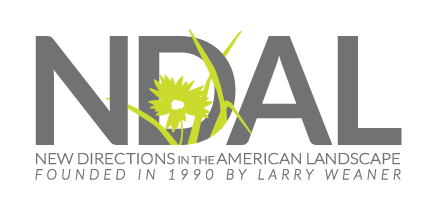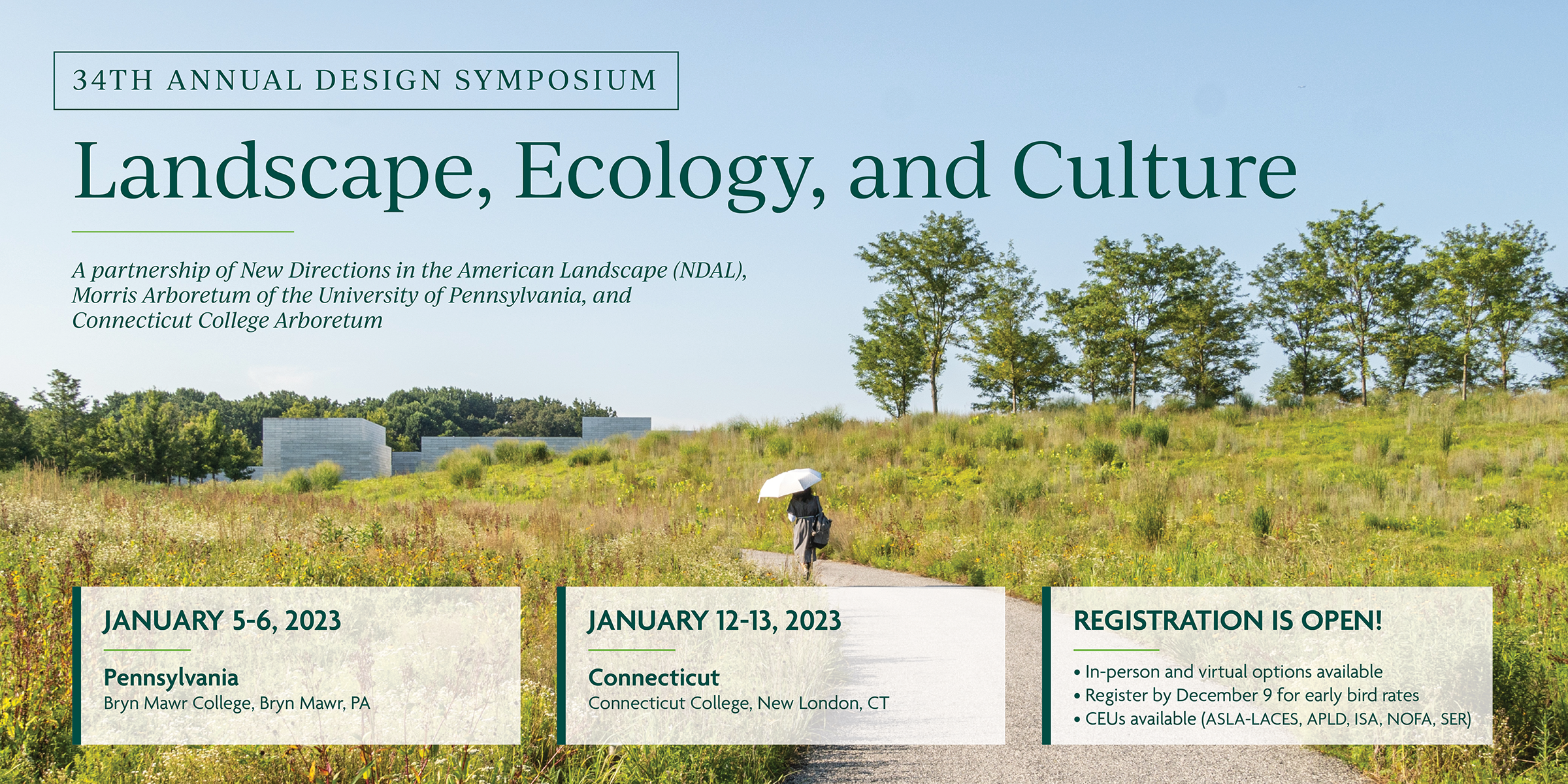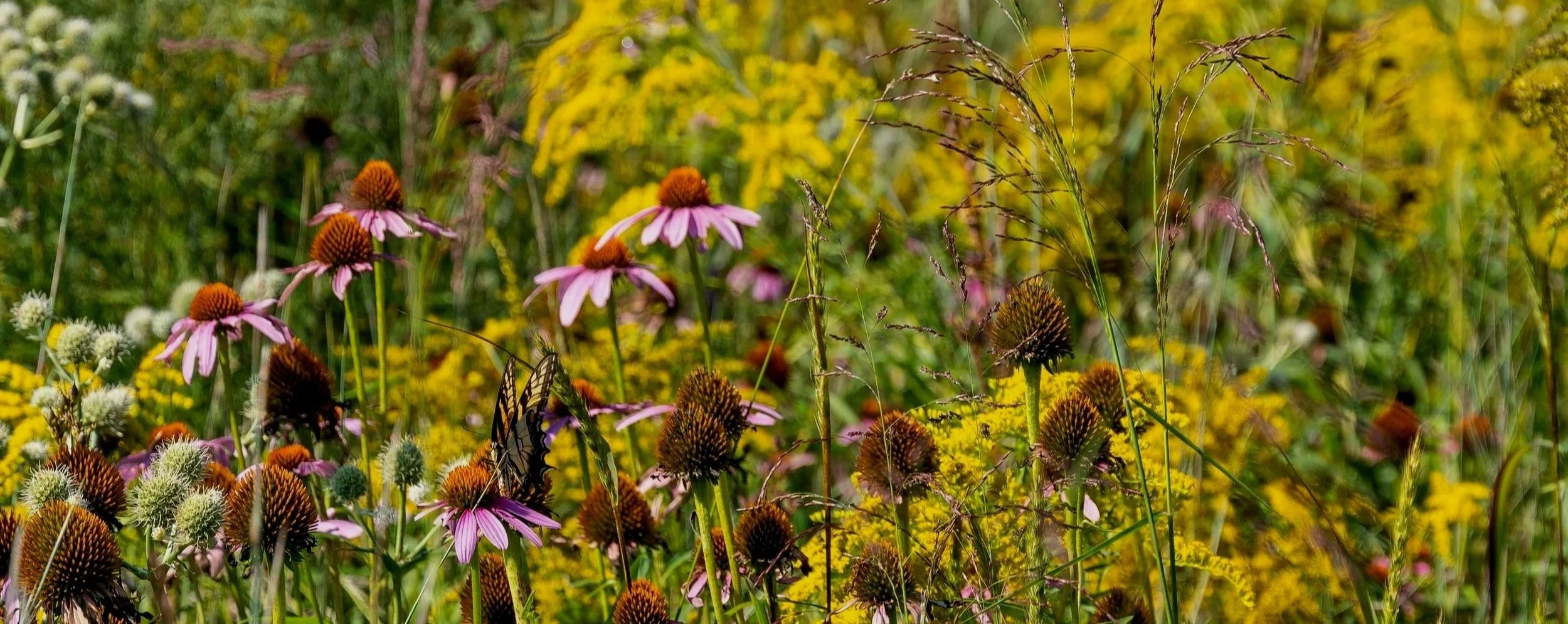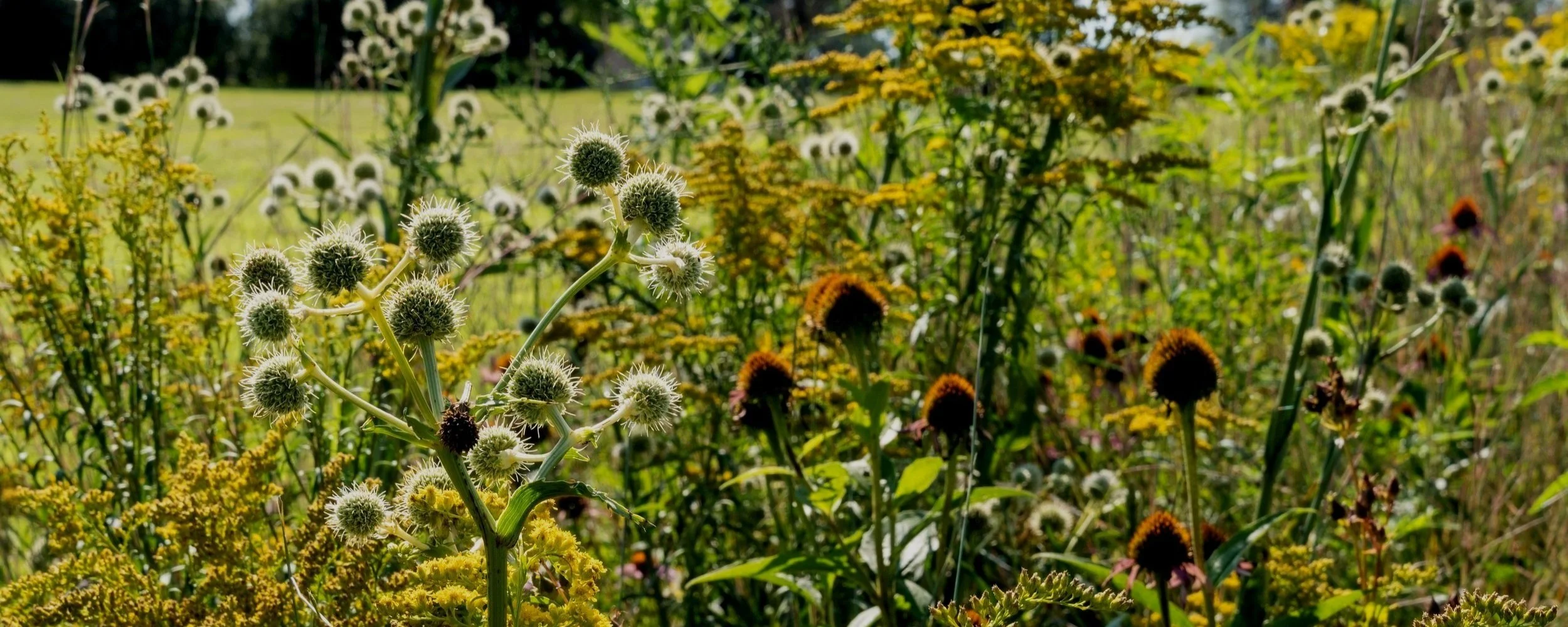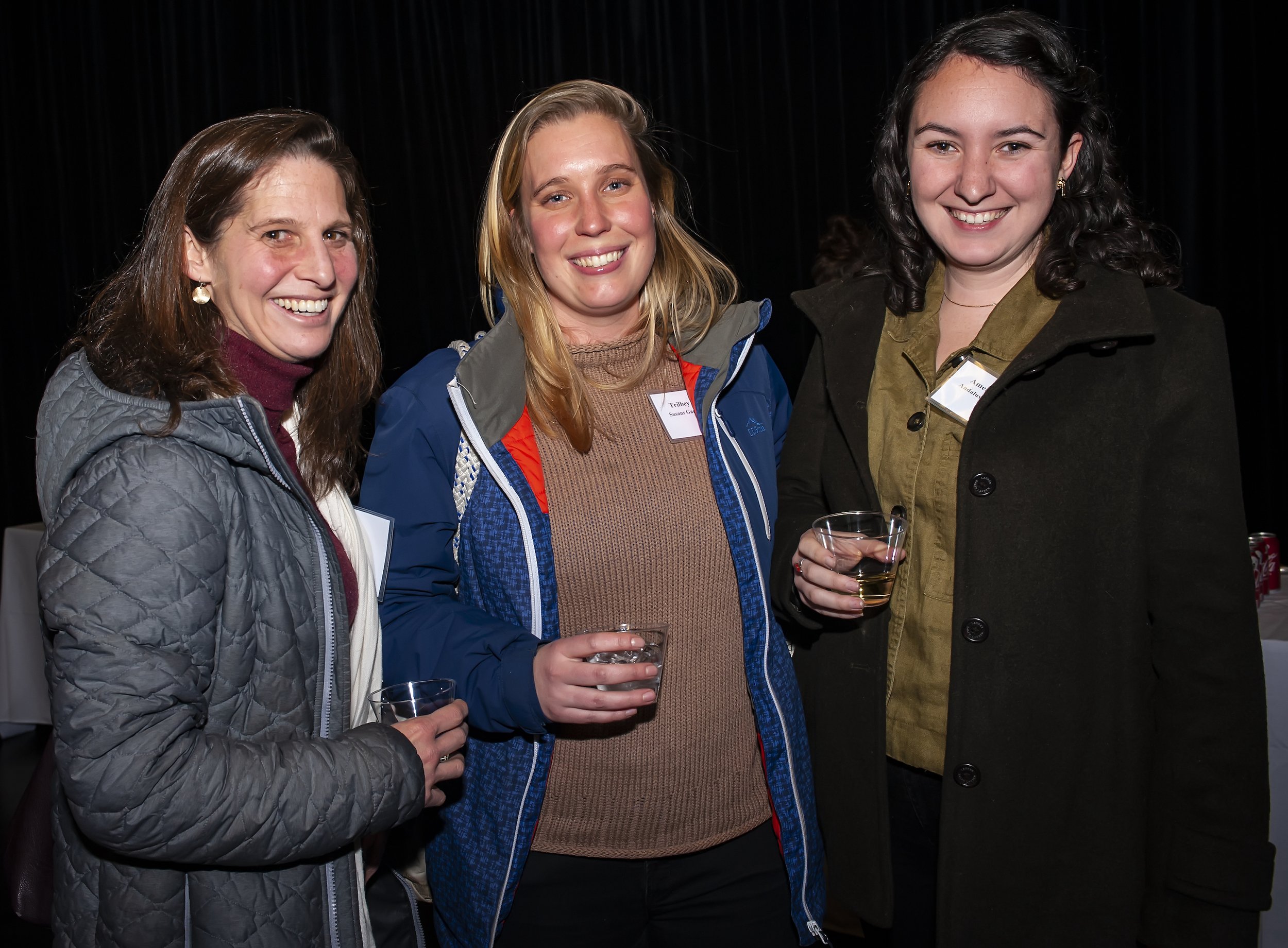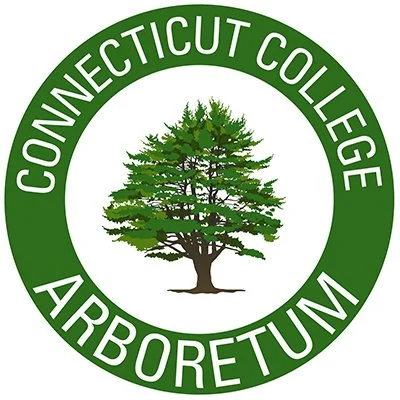Glenstone Museum | Photo: Mark Weaner
Founded in 1990, our annual two-day symposium has a long tradition of celebrating native plants and exploring landscape design at the intersections of ecology, culture, and art. The symposium series deliberately pushes the envelope, offering in-depth explorations of overlooked and forward-looking topics not presented elsewhere and providing practical, concrete information in lieu of trendy jargon. Our programs reflect the diverse factors that shape landscapes and regularly feature designers, ecologists, horticulturists, historians, artists, and anthropologists, among other disciplines. We look forward to seeing you at the symposium!
Registration is now closed for the 34th Annual Design Symposium, Landscape, Ecology, & Culture.
See you next year at the 35th!
January 5-6, 2023
Bryn Mawr College, Bryn Mawr, PA
January 12-13, 2023
Connecticut College, New London, CT
January 12-13, 2023
Livestream (Virtual Only)
$380 Regular | $220 Student (with ID)
Recording of full program (CT venue) will be available mid-January and viewable for 3 months to all attendees (PA & CT in-person and virtual attendees).
CEUs available | 12 CEU hours for most types
Approved: APLD, CBLP, ISA, LA CES, NOFA, PLNA, SER - Details and instructions here.
Bryn Mawr College is not affiliated with this event and should not be contacted regarding the program.
Day 1
Thursday, January 5 (PA) & 12 (CT)
Breakfast and check-in at 8:15 AM
Program begins at 9:00 AM
Adjourn at 5:00 PM
Lunch is included both days.
Evening reception immediately following the program with complimentary wine, beer, and hors d’oeuvres.
Scale up! Landscapes of Productive Planting Exploration
Kate Kennen, RLA
The work at Offshoots aims to alleviate plantings of their traditional maintenance regimes (fertilizer, water, and time), alternatively creating productive landscapes that utilize the power of plants to mitigate pollution (through phytoremediation) and connect regional ecologies. Kate will share a range of work from residential to the infrastructural, where small projects have been used as a testing ground to scale up performative planting concepts.
Kate will be signing her book, Phyto: Principles and Resources for Site Remediation and Landscape Design (Routledge 2015).
Decentralizing Native Seeds: Why and How We Can All Be Native Seed Stewards
Anna Fialkoff, MS
A species’ best strategy for adapting to future environmental conditions is genetic variation, and seed propagation maintains the genetic diversity inherent in wild native plants. As we build awareness around the vital importance of native plants and seeds, we are concurrently facing a major gap in supply of this precious resource. Anna will discuss how the Maine-based Wild Seed Project is addressing access to seed and modeling a movement-building strategy by educating and mobilizing neighborhoods, public officials, and other community stakeholders.
Wild Seed Project publications Native Trees for Northeast Landscapes and Native Groundcovers for Northeast Landscapes will be available for purchase.
Managing for Native Biodiversity: Fire, Weeds and Seeds
Mike Saxton
In this presentation, ecologist Mike Saxon will illustrate how he has managed and expanded on the planted prairies and woodlands at Shaw Nature Reserve in Missouri. He will show what it takes to manage these landscapes over the course of an entire year with a focus on invasive species control, prescribed fire, and the use of established landscape plantings as a seed source for new restoration efforts. Finally, he will illustrate how volunteers and specialized equipment have contributed to his efforts.
Tales of Arbuscular Mycorrhizal Inoculations in Native Plantings: Which Microbes to Use, How to do it and Long-term Effects on Plant Communities
Liz Koziol, PhD
More and more, we learn that soil microorganisms are essential for plant health. Here Dr. Koziol will highlight the various ways arbuscular mycorrhizal (AM) fungi have been utilized to improve restoration success, including improvements in native establishment, and inhibition of weedy and non-native plants. Because methods used to distribute native inocula into restorations remain to be optimized and long-term study on the effects of inoculation are rare, she will also discuss some of the most efficient application techniques that have resulted in long-term impacts.
Panel
Anna Fialkoff, Liz Koziol, & Mike Saxton, moderated by Larry Weaner, FAPLD
Frequently, the side tangents that lecturers don’t have time to explore can be as enlightening as the core material that they do cover. In this conversation-style panel Anna, Liz, and Mike will more fully explore those tangents with moderator Larry. They will also answer participant questions.
Wild Plant Culture: Restoring Native Edible and Medicinal Plant Communities
Jared Rosenbaum
For millennia the North American landscape was tended for the abundance and diversity of native food, medicinal plants, and other cultural plants. Contemporary ecological restoration goals seldom seek to restore the cultural relationships we have with plants. We’ll discuss how restoring edible and medicinal plant species can deepen our reciprocal relationships with plant communities and foster a culture of long-term stewardship.
Jared will be signing his book, Wild Plant Culture: A Guide to Restoring Edible and Medicinal Native Plant Communities (New Society Publishers 2022).
Day 2
Friday, January 6 (PA) & 13 (CT)
Breakfast and check-in at 8:00 AM
Program begins at 8:30 AM
Adjourn at 4:30 PM
Lunch is included both days.
Hudson Garden Studio In Practice: Ecology, Transformation, and Meaning
Liz Campbell Kelly, RLA, ASLA, LEED AP
Liz will discuss recent projects of Hudson Garden Studio that exemplify the professional ethos of the practice–a commitment to sustainable design for the stewardship of our shared environment. These smaller scale, residential projects create ecologically robust designs, engage with their community, and most of all create beautiful experiences of the natural world. The sum of these aspects of practice is to create a positive meaning in our communities: local, regional, and beyond.
Harnessing Tradition and Innovation: Cultural Landscapes and Their Relevance to Contemporary Practice
Ed Ikin
The English landscape is shaped by human use, our most biodiverse habitats are the consequence of our management. Ed Ikin will reflect on how the historic landscapes of The Royal Botanic Gardens of Kew at Wakehurst, have influenced resilient new approaches to horticulture, including coppiced woodlands, grazed meadows, and a ‘UK adapted’ North American Prairie. He will demonstrate how traditional and cultural landscape practice is inseparable from species diversity and ecological process, a concept with relevance throughout the globe.
If You Do Nothing, Things Will Grow: Spontaneous Plant Recruitment in the Designed Garden
Larry Weaner, FAPLD
While plants spend millennia evolving traits to increase their reproductive efficiency, planted landscapes are rarely formulated to promote, or even accommodate these highly developed abilities. In this session Larry will discuss how to design, plant, and manage landscapes that assist with the self-proliferation of planted species, and foster the spontaneous recruitment of desirable non-planted species. Finally, he will discuss how aesthetic decisions can make these less-restrained gardens legible, cohesive, and experientially rich.
Larry will be signing his book, Garden Revolution: How Our Landscapes Can Be a Source of Environmental Change (Timber Press, 2016).
Take Two: Renovating Design and Restoring Intent
Andi Pettis
What happens when maintenance is deferred on a newly built 40 million dollar public park? Andi Pettis reflects on her experience restoring the West 8 designed landscapes and gardens on Governors Island, a 172-acre former military base, now considered the jewel of New York Harbor. As the first Director of Horticulture, Andi has built a team of horticulturists, landscapers, and arborists who are collaborating to design trials for managing invasive species, mitigating erosion, and re-populating the Island’s novel landscapes through propagating native plants.
The Landscape of Equity
Maisie Hughes
This presentation will examine how landscape designers can help to grow urban forests in the most vulnerable communities using the Tree Equity Score and equitable engagement tactics. Maisie will introduce the American Forests’ approach to equitable community engagement, which seeks to transform how we design city landscapes. Participants will learn about climate and health products including Climate Vulnerability Studies; Species Selection Guides; and Climate Adaptation Actions for Urban Forests & Human Health, a report that American Forests co-created with the Northern Institute of Applied Climate Science.
Radical Gardens of Love and Interconnectedness
David Godshall, RLA, ASLA (CT only) / Kasey Toomey, RLA (PA only)
Terremoto is presently navigating a transitional period within its practice towards making omni-positive gardens and landscapes that are fair, just, and generous in their relationships to labor, materials, and ecology. We believe that we are at a cultural, environmental, and civilizational fork in the road, and through deep internal self-interrogation of landscape history and practice (including our own), we are creating a constantly evolving set of metrics that will allow us (and you!) to create gardens that can lock horns with the BIGNESS of this moment.
Speakers
Anna Fialkoff, MS, is the Ecological Programs Manager at the Wild Seed Project, where she furthers the organization’s educational mission through her walks, talks, workshops, and writing of an information-rich publication on native plants. She also works with community, non-profit, and small business partners to demonstrate ecology in action. Anna previously served as a senior horticulturist at Native Plant Trust’s botanical garden in Framingham, MA.
David Godshall, RLA, ASLA, is a landscape architect, horticultural theorist, and Design Director of the Terremoto office in Los Angeles. David’s strategic approach to design is inherently rooted in philosophy and the idea that ecology, horticulture, and landscape have transformative physical and metaphorical impacts upon a person and a place. David received a master’s degree from UC Berkeley after receiving a BA from UC Santa Barbara.
Maisie Hughes oversees the implementation of American Forests’ urban initiatives including the Tree Equity program. Hughes is also the co-founder of The Urban Studio, a nonprofit dedicated to equitable and sustainable urbanism. She previously led the design and advocacy team for Casey Trees, served as the landscape architect and environmental designer for Morgan State University, and managed environmental programs for DC Parks and Recreation and the Greater Washington Urban League.
Ed Ikin is Director of Wakehurst, a 535-acre wild botanic garden at Royal Botanic Garden, Kew. He was previously Chair of London Parks and Gardens Trust, General Manager of Morden Hall Park and Rainham Hall in London, and Head Gardener at Nymans (National Trust). He is a Clore Fellow and Fellow of the Royal Society of Arts and holds a RHS Master of Horticulture, a MA in Garden History, and BSc in Biology.
Liz Campbell Kelly, RLA, ASLA, LEED AP, brings a diverse background in the arts and design to her vision for ecological landscapes. She received an MLA from PennDesign in 2006 and worked in New York City before moving to the Hudson Valley and launching Hudson Garden Studio, an ecologically-minded landscape gardening firm. She received a BA from Brown University studying Art/Semiotics, including a year of study at the AA School of Architecture in London.
Kate Kennen, RLA, is founder of Offshoots, Inc., a Boston, MA landscape architecture and horticultural installation practice; and full-time professor at Northeastern University. Her book, co-authored with Niall Kirkwood, PHYTO: Principles and Resources for Site Remediation and Landscape Design, translates the science of phytoremediation into an easy-to-understand guide for design professionals. She grew-up in her family’s garden center in central Massachusetts where she is still trying to convince her dad that there ARE a few landscape architects who know about plants.
Liz Koziol, PhD, is a plant-microbe ecologist at the Kansas Biological Survey in the University of Kansas. She has spent the last 14 years researching arbuscular mycorrhizal fungi in nature and has conducted dozens of mycorrhizal inoculation trials across a variety of landscapes including native grassland restorations, annual and perennial cropping systems. In 2015, she founded MycoBloom LLC, which produces U.S. native mycorrhizal inocula for the native plant industry.
Andi Pettis is the Director of Horticulture with The Trust for Governors Island, where she works with a team of innovative horticulturists and landscapers in New York City. She formerly served as the Director of Horticulture at the High Line, where she began her career in public horticulture as a gardener. Currently, Andi is also working with Forest For All NYC, a coalition of organizations dedicated to building a healthy, biodiverse, robust, accessible, and resilient urban forest for New York City that will help the city adapt to and mitigate climate change.
Jared Rosenbaum is a botanist, native plant grower, and Certified Ecological Restoration Practitioner. He is a founding partner at Wild Ridge Plants, LLC, a business that grows local ecotype native plants and performs botanical surveys. Jared is the author of Wild Plant Culture: A Guide to Restoring Native Edible and Medicinal Plant Communities (2022), as well as the children’s book The Puddle Garden (2015), about native plants and wildlife.
Mike Saxton is the Manager of Ecological Restoration and Land Stewardship at Shaw Nature Reserve, a division of the Missouri Botanical Garden, in Gray Summit, MO. Mike coordinates invasive species control efforts, native seed collection and sowing, and prescribed fire operations over the Reserve’s 2,400 acres of diverse habitats.
Kasey Toomey, RLA, is a landscape architect, multi-disciplinary visual artist, and Senior Project Manager at Terremoto in Los Angeles. He believes in non-human centric design solutions and using only hyperlocal plants and materials. Kasey received his BSLA with Distinction in Research from Cornell University and a MFA concentrating in sculpture from the University of Pennsylvania.
Larry Weaner, FAPLD, founded Larry Weaner Landscape Associates in 1982 and established NDAL in 1990. He is nationally recognized for combining expertise in horticulture, landscape design, and ecological restoration. His book Garden Revolution: How Our Landscapes Can Be a Source of Environmental Change (2016) received an American Horticultural Society (AHS) Book Award in 2017. In 2021 he received the AHS Landscape Design Award and the APLD Award of Distinction.
“Thank you as always for making this a worthwhile investment every winter. Love where your eternal curiosity leads us!”
“This conference always has thought provoking dialogue and pushes my knowledge to a new level of awareness about the issues of our time as ecological designers.”
Fees
Regular Rate (in-person & virtual)
$355 if registered by Dec. 9, 2022
$380 if registered after Dec. 9, 2022
Student Rate - with ID (in-person & virtual)
$195 if registered by Dec. 9, 2022
$220 if registered after Dec. 9, 2022
Register by:
Dec. 30, 2022 (PA location)
Jan. 6, 2023 (CT location)
Jan. 11, 2023 (Virtual only)
NDAL Events Portal & Materials:
When registering for the symposium on the NDAL Events Portal you will be asked to either sign into your existing account or create one. This account will give you exclusive access to the session recordings and course materials. These materials will be available until three (3) months after the live event date.
To register multiple staff members at once, please email info@ndal.org with their full names, email addresses, and PA/CT/virtual choice. We can then register them and send an online invoice for payment.
Registration will be refunded only if notification is received before ten (10) working days prior to the event less a $10 processing fee.
Student Scholarship – Free Symposium Admission
Students and recent graduates are invited to apply for scholarships granting free admission to the Symposium. Four scholarships will be awarded - two per venue (or virtual if desired). The scholarships honor Darrel Morrison, FASLA, Senior Honorary Faculty Associate, University of Wisconsin-Madison, Department of Planning and Landscape Architecture and Glenn Dreyer, Connecticut College Arboretum Director Emeritus.
Eligibility: Current undergraduate/graduate student or matriculation in 2022.
Application deadline: December 2, 2022.
Recipients notified by: December 7, 2022.
Applicants will be notified by December 7 so that anyone who is not selected has time to register for early-bird admission, which ends on December 9.
Apply for a Student Scholarship here.
Photo by Gina Vecchione Photography
“I keep coming back. Haven’t been disappointed yet.”
Contact
Registration, NDAL Events Portal, & Virtual Only Questions:
Sara Weaner Cooper
Executive Director
New Directions in the American Landscape
sweaner@ndal.org
510-518-0430
Pennsylvania, January 5-6, 2023 Questions:
Stephanie Bruneau
Assistant Director of Adult Education
Morris Arboretum of the University of PA
sbruneau@upenn.edu
215-247-5777 Ext: 156
Connecticut, January 12-13, 2023 Questions:
Maggie Redfern
Assistant Director
Connecticut College Arboretum
mredfern@conncoll.edu
860-439-5060
